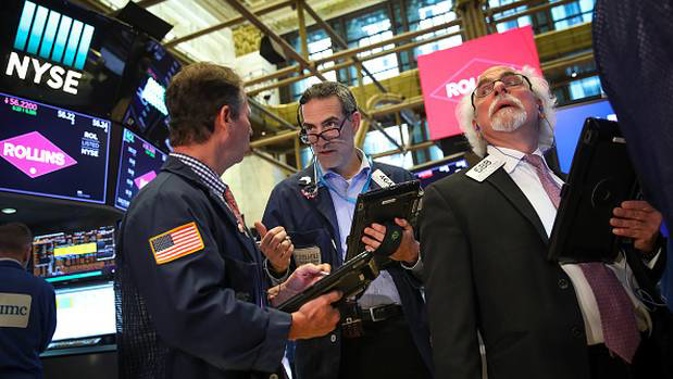
Investors are buckling themselves in for a wild ride as a raft of uncertainties buffet the financial markets around the world.
Equity markets will likely continue to exhibit a higher level of volatility after what has been a strong run over the last three years, fund managers said.
Perhaps as a sign of things to come, the US stock market roared back into life after US Federal Reserve chairman Jerome Powell appeared to backtrack on his previously staunch approach to monetary policy.
Powell, who earlier signalled that two more rate hikes were in store for this year, last week raised the possibility of a pause in the Fed's interest-rate hiking campaign and an alteration in its balance sheet reduction plans.
The US stock market's strength this year is in stark contrast to December, when it dropped 9 per cent.
Sharemarkets have bounced a little from recent lows but are still looking battered around the edges.
Wall Street's Dow Jones industrial Index is now down 12.3 per cent compared with last October's record high.
The local market has not fared so badly - thanks mostly its defensive, utilities-laden makeup, with the NZX50 index dropping by 6 per cent against its record high set last September.
"This year - it's all about risk on and risk off trade," Salt Funds managing director Matt Goodson said.
The so-called January effect - a theory backed by some data - suggests that a strong start to the year can lead to a strong year.
Goodson said end-of-cycle volatility could be a factor this year and the US yield curve turning negative last year - seen as a signal of recession - remains a concern.
"This year we are at a point where the markets are far more volatile than they have been for quite some time and that will dominate, along with these rapidly changing views about the likelihood or otherwise of recession, the likelihood or otherwise of inflation," he said.
Attention now is turning to US reporting season this month's following on from Apple's surprise earnings' warning early this month.
"So that is certainly a big risk factor for markets and likewise for New Zealand and Australian companies when they report in February," Goodson said.
Aside from the international markets, Goodson said what happens in the domestic real estate market this year could prove pivotal.
He said sharp falls in the Australian real estate market had spilled over into retail sales, and that trend could be replicated here.
Real estate has been a key driver of the New Zealand economy, particularly due to the wealth effect provided by sharp gains in house prices.
"It's going to be a volatile ride. The New Zealand market, in particular, remains expensive, going on some pretty robust historical benchmarks," he said.
In terms of the global equities rout, New Zealand had been let off lightly partly because of the bond-proxy companies such as the power generators, along with Auckland Airport and Spark.
"The key question for the year ahead is what will dominate - those explosive comments from the Fed - or risk aversion," he said.
"We are seeing some very sharp shifts in between those two poles," he said.
The greatest concern for the markets will be if there is an economic slowdown coupled with inflation.
Mark Lister, head of private wealth research at Craig's Investment Partners, said clients had been largely philosophical about last year's late pull back.
"For the most part, people have been expecting a speed bump to come along," he said.
"Investment managers have been telling their customers that the good times can't keep roll on forever," Lister said.
Lister expected central bank policy, in the US and the around the world, to be a key issue.
Other big issues will be US-China trade tensions, Britain's exit from the EU, debt-laden Italy's relationship with the EU, and global economic growth.
"At the moment, things are quite fragile - we have had five good days after three months of extreme volatility," Lister said.
"I am mindful that there is more volatility ahead, so I think that its time for playing safe and making sure that you are not betting the farm or taking on more risks," Lister said.
Harbour Asset Management analysts said in a research note that equity markets will likely continue to exhibit a higher level of volatility than they have over the last three years, which have been extremely favourable for investors.
"In the near term, we may see higher than average levels of volatility," Harbour said.
"While we may have already seen the bulk of the equity markets pricing response to tighter US financial conditions and lower expectations of economic growth, markets don't generally adjust to change quietly."
Take your Radio, Podcasts and Music with you









